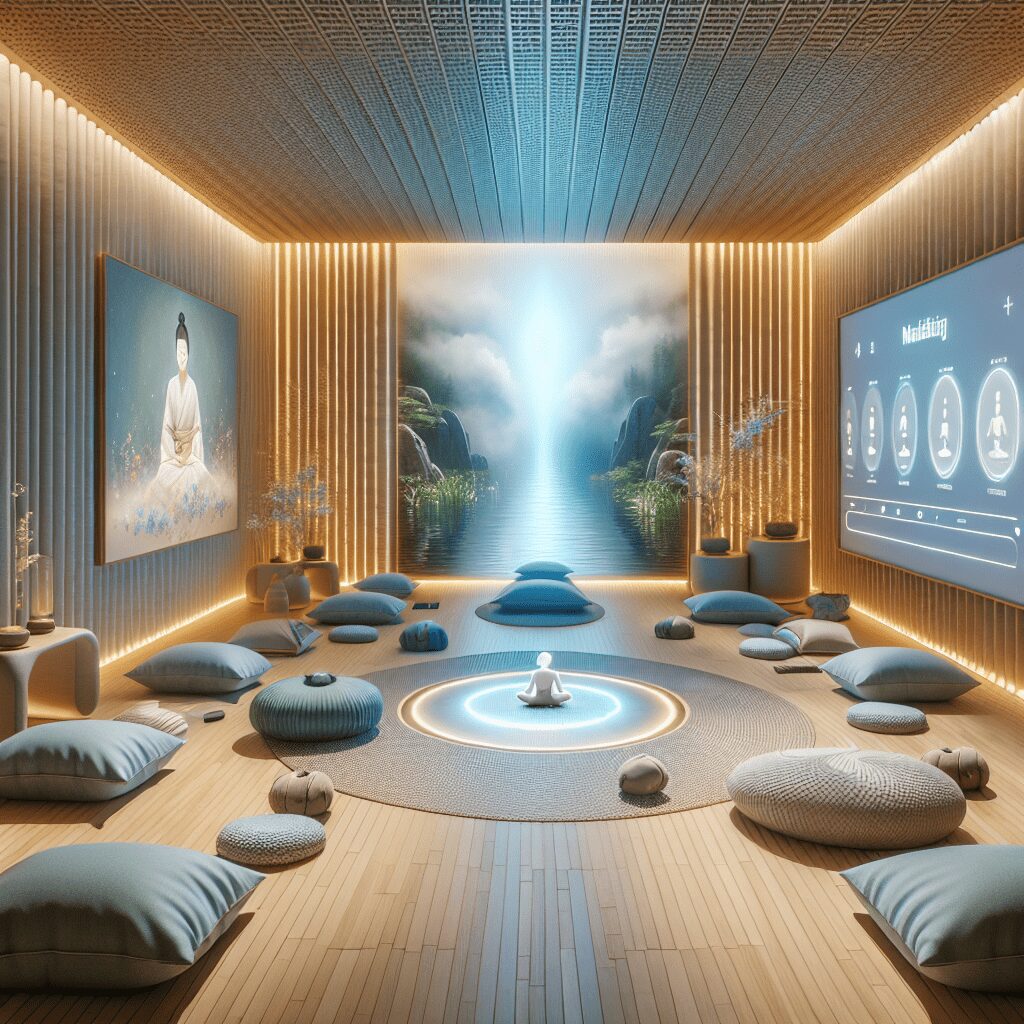
Prioritize your mental well-being daily. Enhance your life by nurturing your mental health with the Smart Meditation app. Break free from stress, alleviate anxiety, and enhance your sleep quality starting today.
Where To Get Help For Insomnia Due To Anxiety?
Unraveling Solutions for Anxiety-Induced Sleeplessness
Ah, the age-old conundrum of tossing and turning when all you crave is the sweet embrace of slumber. Insomnia, particularly that pesky kind spurred on by anxiety, can feel like you’re stuck on an endless carousel of worry. But fear not! There’s a treasure trove of resources and strategies out there, poised to guide you back to the Land of Nod. So, where does one begin in this quest for restful Z’s amidst the storm of anxiety?
Navigating the Seas of Support
The Digital Compass
First off, the internet is awash with compasses pointing in the direction of sleep salvation. Reputable health websites like the Mayo Clinic or WebMD offer veritable oases of info, from understanding your symptoms to providing evidence-based coping strategies. Just remember, while Dr. Google is a click away, it’s best not to fall down the rabbit hole of self-diagnosis. Think of it as gathering intel, not carving your treatment path in stone.
The Professionals’ Domain
Venturing into more personalized territories, consulting with a healthcare professional can be akin to having a seasoned navigator at the helm. Whether it’s your family doctor, a psychiatrist, or a psychologist, these pros can deep-dive into your unique health blueprint. They might suggest cognitive-behavioral therapy (CBT), particularly its insomnia-focused variant (CBT-I), known for its effectiveness in untangling the knots of sleep and anxiety.
Community Pillars
Believe it or not, there’s strength in numbers. Support groups, whether in-person or online, serve as lighthouses for those navigating the murky waters of anxiety-driven insomnia. Platforms like Reddit or specialized forums can offer camaraderie and practical advice, borne from the personal voyages of individuals just like you.
Apps and Gadgets: Your Digital Deckhands
In today’s tech-savvy world, your smartphone could very well be your Swiss Army knife for combating insomnia. Apps designed for meditation, mindfulness, and sleep improvement, such as Headspace or Calm, are just a few taps away. Wearables tracking sleep patterns also offer insightful data to better understand (and hopefully improve) your sleep rhythms.
Anchoring Your Strategy with Lifestyle Adjustments
While exploring external aids, don’t overlook the power of tweaking your day-to-day activities.
-
Embarking on the Exercise Journey: Regular physical activity has been shown to improve both sleep quality and anxiety. But beware the siren call of late-evening workouts; they might just perk you up instead of winding you down.
-
Dietary Navigations: Watching what you put on your dinner plate can be as crucial as your activities. Limiting caffeine and sugar, especially in the latter part of the day, can keep bedtime jitters at bay.
-
Routine Building: Establishing a pre-bedtime routine can signal to your brain that it’s time to dial down for the night. Whether it’s a warm bath or a chapter of a book, consistency is key.
-
Cutting Screen Time: The blue light emitted by screens can mess with your melatonin levels, so try curbing screen time an hour before bed.
In the grand tapestry of coping with anxiety-driven insomnia, there’s no one-size-fits-all solution. It’s about piecing together a quilt of strategies that work for you, revisiting and adjusting as you go. Remember, it’s not just about conquering a single restless night; it’s about charting a course towards sustained wellbeing. With the right tools and supports at your disposal, you’re well on your way to reclaiming the night and greeting the morning refreshed and ready to take on the world.





